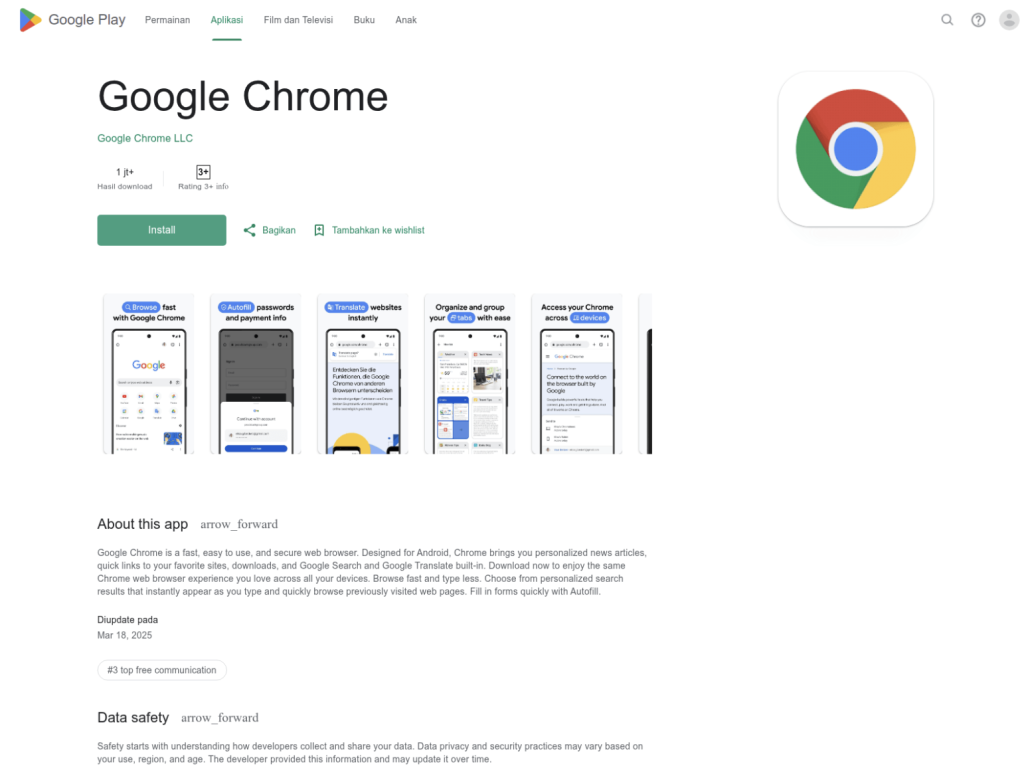A resurfacing campaign distributing the AndroidOS SpyNote Remote Access Trojan (RAT) has been uncovered, this time using cloned Google Play Store pages designed to trick mobile users into downloading malicious applications.
The pages replicate the look and feel of legitimate app listings to convince victims to install what appear to be popular apps, but instead deliver SpyNote, a potent Android malware capable of surveillance, credential theft, and remote control of compromised devices.
SpyNote RAT Gains New Evasion Tactics
SpyNote remains one of the most intrusive Android RATs, providing attackers with complete visibility and control over victims’ devices.
Once deployed, it can activate the camera and microphone, intercept SMS messages, read call logs, monitor GPS location, capture keystrokes, and steal application credentials, including two-factor authentication tokens.

It also allows remote actors to wipe data, lock devices, install additional applications, and perform overlay attacks that mimic legitimate app screens to trick users into divulging sensitive information.
The latest campaign showcases several technical refinements aimed at avoiding detection. The attackers now use a dropper APK that carries an encrypted payload and decrypts it at runtime using a key derived from the application’s manifest.
The decrypted package is then decompressed to reveal the SpyNote RAT. By employing a method known as DEX element injection, the dropper modifies the core ClassLoader of the application through reflection, forcing the Android system to prioritize malicious code execution over legitimate app code.
This allows SpyNote to bypass static analysis while hijacking critical application functions needed for data interception and persistence.
The delivery mechanism relies on deceptive Play Store lookalikes where a user clicking “Install” triggers a hidden iframe referencing a JavaScript URI that automatically initiates the download of a malicious APK, such as Chrome.apk.
These cloned pages are static replicas using HTML and CSS copied directly from Google’s Play Store, with only the Install button functionality altered to distribute malware.
Limited but Persistent Threat Actor Infrastructure
Despite repeated exposure in prior research, the operators show persistence in their social engineering tactics while exhibiting only modest technical sophistication.
Their infrastructure remains centralized on two recurring IP addresses, 154.90.58[.]26 and 199.247.6[.]61, with fake Play Store domains including mcspa[.]top, megha[.]top, and jewrs[.]top.
Hosting services are leased from commodity providers such as Vultr Holdings LLC and Lightnode Limited, and SSL certificates are issued with minimal validation.
To complicate analysis, SpyNote payloads now include obfuscated identifiers using visually similar characters such as “o,” “O,” and “0,” making it more difficult for analysts to parse control flow.
The applications chosen for impersonation remain wide-ranging. Dating apps such as iHappy, Kismia, and CamSoda are favored lures alongside gaming apps like 8 Ball Pool and Block Blast, and general utilities including Chrome, meus arquivos 2025, GlamLive, and LoveVideo.
This diversity suggests the actors are casting a broad net to maximize infections, with financial gain as the most likely motive given the extensive credential theft and data exfiltration capabilities.
Defensive Outlook
The renewed campaign highlights the risks of sideloading applications from unverified websites. Security experts stress the importance of browser-level detection to block deceptive Play Store lookalike domains before users reach them.
Antivirus providers and the Android ecosystem must further enhance automated runtime analysis to counter increasingly dynamic malware loading techniques.
Meanwhile, VPN and network security providers can contribute by filtering connections to known malicious domains and command-and-control addresses tied to SpyNote.
Although the actor behind this activity demonstrates limited infrastructure flexibility and relatively simple obfuscation methods, their persistence and reliance on practical social engineering underline the enduring danger of mobile RAT campaigns.
SpyNote remains a formidable threat, and this campaign is a reminder that defensive vigilance is critical in protecting users against opportunistic yet capable adversaries.
Find this Story Interesting! Follow us on Google News , LinkedIn and X to Get More Instant Updates